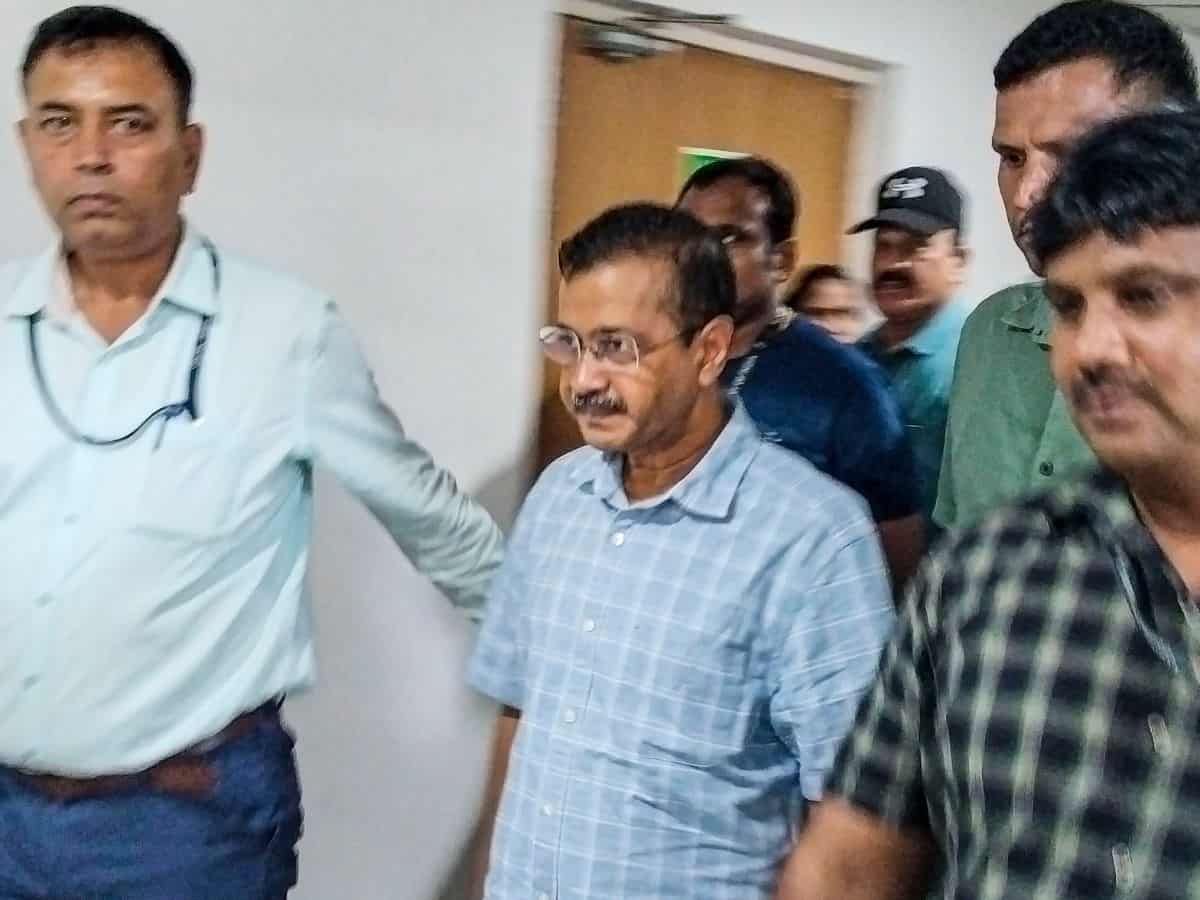
New Delhi: The Supreme Court is scheduled to deliver on Friday its verdict on Delhi Chief Minister Arvind Kejriwal’s plea challenging his arrest by the Enforcement Directorate in a money laundering case linked to the alleged excise policy scam.
As per the cause list of July 12 uploaded on the apex court’s website, a bench headed by Justice Sanjiv Khanna will pronounce the judgement.
On May 17, the bench, also comprising Justice Dipankar Datta, had reserved its verdict on Kejriwal’s plea.
The apex court had on April 15 sought a response from the ED on Kejriwal’s plea challenging his arrest in the money laundering case.
The Aam Aadmi Party (AAP) chief has challenged in the top court the April 9 order of the Delhi High Court that had upheld his arrest in the case.
The high court had upheld Kejriwal’s arrest in the case, saying there was no illegality about it and that the ED was left with “little option” after he skipped repeated summonses and refused to join the investigation.
The chief minister was arrested on March 21 by the ED in the money laundering case.
On June 20, he was granted bail by a trial court here on a personal bond of Rs 1 lakh in the case.
However, the ED had moved the Delhi High Court the next day and contended that the trial court’s order granting bail to Kejriwal was “perverse”, “one-sided” and “wrong-sided” and that the findings were based on irrelevant facts.
The high court, on June 21, imposed an interim stay on the trial court’s bail order till passing of an order on ED’s application for interim relief. On June 25, the high court had passed a detailed order staying the trial court order.
Kejriwal was also arrested by the CBI on June 26 in connection with the corruption case related to the alleged excise policy scam.
The matter relates to alleged corruption and money laundering in the formulation and execution of the Delhi government’s excise policy for 2021-22, which has now been scrapped.
